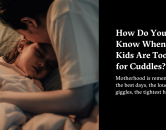Source Feed: National Post
Author: National Post
Publication Date: May 7, 2025 - 06:00
Majority of Canadians feel unwelcome and unsafe travelling to United States: new poll
May 7, 2025
More than half of Canadians no longer feel welcome or safe travelling to the United States, according to a new poll.
The Leger survey conducted for the Association for Canadian Studies (ACS) ahead of Prime Minister Mark Carney’s first in-person
meeting with U.S. President Donald Trump
at the White House on Tuesday, found that a majority (52 per cent) of respondents agree that “it is no longer safe for all Canadians travelling to the United States.” Slightly more (54 per cent) don’t feel welcome anymore. Less than a third of Canadians (29 per cent) said they disagree that it is no longer safe and 27 per cent said they still feel welcome. In both cases, 19 per cent said they don’t know.
Between an ongoing trade war, Trump’s repeated calls to make Canada the 51st state and increased security at the southern border, tensions have been increasing between the neighbouring countries. Jack Jedwab, president and CEO of the ACS, said these tensions are causing Canadians to worry.
“If Canadians have serious concerns about this, it has ramifications for our ongoing travel and interaction with Americans and with the United States,” he said. “It’s something that needs to be addressed and it’s something that Mr. Carney needs to help Mr. Trump understand.”
Jedwab said he doesn’t think Canadians’ concerns are being seen as a priority by the American leadership, and that the president should be paying more attention.
“There are economic ramifications arising from Canadians not feeling secure when travelling to the United States and not feeling welcome in the country that we generally see as the home of our main allies,” he said.
Respondents aged 55 and over were most likely (59 per cent) to agree that it is no longer safe to travel to the U.S., as well as those in Atlantic Canada (55 per cent) and British Columbia (57 per cent). Canadians aged 18 to 54 were less likely to agree, as well as Albertans (47 per cent in both cases). Canadians in Atlantic Canada were also the most likely (64 per cent) to feel like they are not welcome in the United States, followed by Quebecers (58 per cent). Sixty per cent of those aged 55 and older felt the same.
Canadian visits to the United States have been decreasing. As of March 2025, Canadians had booked 70 per cent fewer flights to American destinations for April to September, when compared to March 2024, according to a market analysis by
OAG, a global air travel data provider.
Jedwab said recent stories of people’s experiences crossing the border are creating the level of anxiety that is reflected in the survey.
“Some of the level of concern is arising from recent stories we’re hearing about Canadians.… (They’re) reporting that they’re being checked in ways that they have not been checked before,” he said.
According to the
U.S. Travel Association
, the United States receives the most international visitors from Canada, with 20.4 million visits in 2024. It creates 140,000 American jobs and generates $20.5 billion.
The poll also asked Canadians to respond to Trump’s claim that the Canada-U.S. border is an artificial boundary. Trump said in an interview with NBC’s Meet the Press that aired Sunday that the border is an “artificial line” that prevents the two territories from forming a “beautiful country.”
Just under half of Canadians don’t believe the border between the two countries is artificial, while almost a third don’t know what to think.
Forty-seven per cent of respondents disagreed that “the line/boundary between Canada and the United States was drawn artificially,” but 23 per cent agreed with Trump and 30 per cent said they don’t know.
For respondents between the ages of 18 and 24, 39 per cent said, “I don’t know.” Less than a third (32 per cent) said the border is not artificial, while 29 per cent said that it is.
“The most surprising part was that younger people were less sure about (the line/boundary being artificial), so they may be sort of more vulnerable to that type of rhetoric,” he said.
Leger conducted the online survey of 1,626 respondents across Canada between May 1 and 3. A margin of error cannot be associated with a non-probability sample in a panel survey for comparison purposes. A probability sample of 1,626 respondents would have a margin of error of plus or minus 2.5 per cent, 19 times out of 20.
Our website is the place for the latest breaking news, exclusive scoops, longreads and provocative commentary. Please bookmark nationalpost.com and sign up for our daily newsletter, Posted, here.
Seven surviving NDP MPs are set to return to the House of Commons later this month, reduced not only in number, but in status.The party’s immediate task is to find a new leader to replace Jagmeet Singh, who finished in a dismal third place in his Burnaby Central riding. It will also conduct an internal review to examine how the party did so poorly in the April 28 election.
May 10, 2025 - 07:00 | Justine Hunter, Emily Haws | The Globe and Mail
“I don’t think I can go to school today.” My daughter’s voice is hoarse, and she opens her eyes for a second, squinting against the glare of the morning light. I can tell by looking at her that she’s not well: her cheeks are pink and flushed, and her eyes are a little glassy. She’s had a mild cough all weekend. I’d already planned to keep her home from school today.
But I go through the motions anyway, assessing her condition. I sit on the edge of the bed and lean over to press the palm of my hand to her forehead. I pretend that I am thinking, pondering, considering. Then I pretend...
May 10, 2025 - 06:30 | Christina Myers | Walrus
OTTAWA — For some politicians, the grief takes time to set in.
For former London West MP Sue Barnes, however, the sense of loss after being defeated in her 2008 re-election bid landed like a thud.
Barnes, like other MPs, had been living a life of too many people to see, too many things to read, too many events to attend, too few hours in the day. But there was no shortage of purpose.
That’s the way it had been pretty much for 15 years in Parliament for the first woman elected to represent any riding in her southwestern Ontario city. And then, after a few hours of ballot counting,...
May 10, 2025 - 06:00 | Simon Tuck | National Post



Comments
Be the first to comment